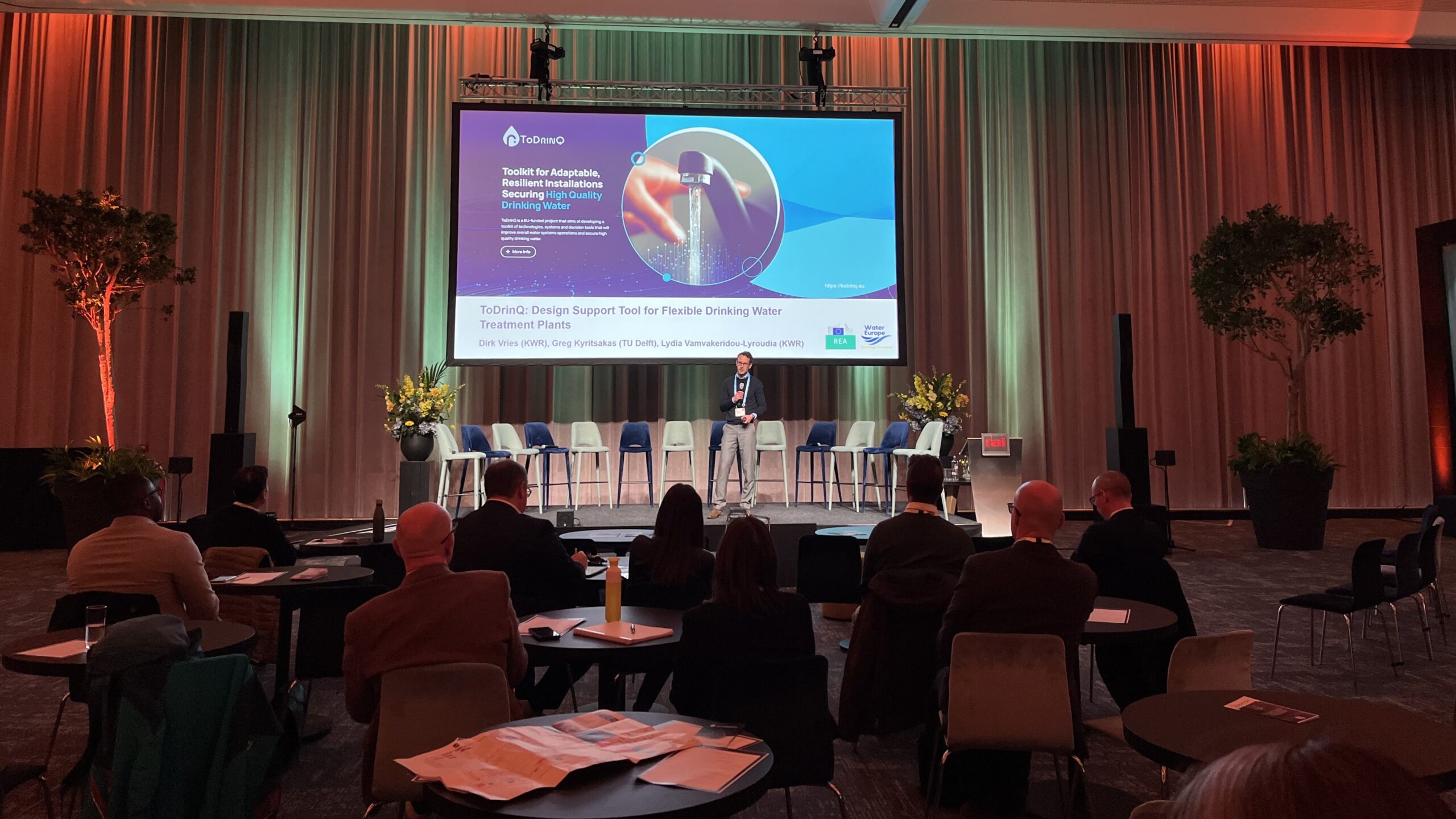The Water Projects Europe 2025 event successfully took place on March 12 in Amsterdam, sponsored by the EU-funded projects IDEATION and WATERVERSE.
For the first time, WPE was organised during the Aquatech Amsterdam, the biggest global water fair gathering over 25.000 water enthusiasts from all around the world eager to showcase, learn and connect around water. This milestone marked a significant step in elevating EU-funded projects on a world stage, reinforcing their role in shaping the future of water management.
Hosted by Water Europe, this edition clustered leading EU-funded projects at the forefront of digitalization and innovation in water management, showcasing how digital twins, interoperability, and collaborative solutions are reshaping the water sector.
During the event, Dirk Vries from KWR Water Research Institute presented the ToDrinQ Design-support tool for flexible drinking water treatment plants.
Key Takeaways from WPE2025:
- Digital Twins are the Future: The integration of digital twins into water management is essential for real-time monitoring, risk mitigation, and decision-making across inland and ocean waters.
- Interoperability & Data Security are Critical: The water sector must overcome fragmentation by establishing secure, standardized, and interoperable data-sharing mechanisms to ensure seamless collaboration. The deployment of a Water Data Space should be the next milestone, establishing a trusted and reliable environment that ensures seamless data sharing and interoperability within the water sector, as well as across sectors such as Energy, the Green Deal, Agri-food, Manufacturing, and more.
- Cross-Border Collaboration is Key: The success of projects like IDEATION, WATERVERSE proves that tackling water challenges requires cooperation between stakeholders across different regions and sectors.
- ZeroPollution4Water Cluster is Driving Change: Clustering EU-funded projects enhances knowledge exchange and fosters synergies, bridging gaps between research, policy, and real-world implementation.
- Political Support & Funding are Essential: Advancing digital water management requires stronger policy frameworks, funding for digital training, and incentives to help small water utilities embrace innovation.
The panel discussions illuminated both the opportunities and barriers to achieving a truly water-smart Europe. Experts debated pressing challenges such as standardisation, cyber security, and the importance of integrating freshwater monitoring into digital twins.




